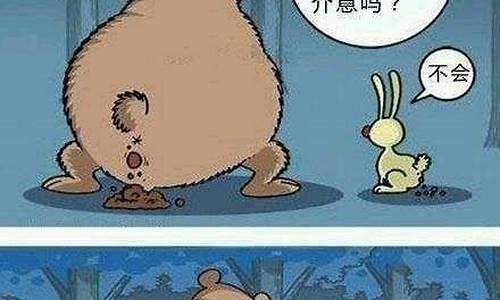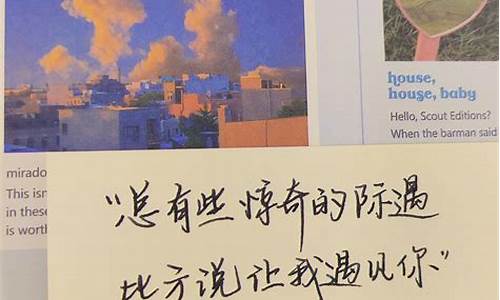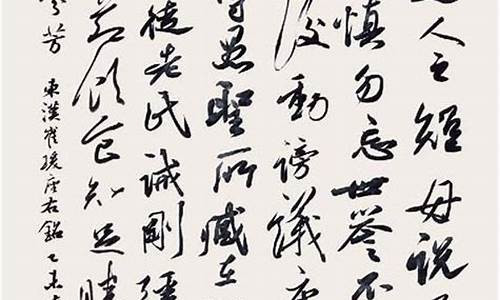初中英语重点句子及翻译_初中英语必背句子180
1.初中译林版牛津英语,一至三年级重点词组和翻译
2.急!!初中英语句子翻译
3.初中英语翻译 1.超市离我家很近,超市离我家很近,步行约5分钟,经常周末和妈妈去那里购物; 2
4.初一英语翻译句子
5.英语翻译(初中水平)

翻译词组:
1.吃垃圾食品
1.eat junk food
2.喝牛奶
2.drink milk
3.吃水果
eat fruit
4.和咖啡
drink coffee
5.吃蔬菜
eat vegetables
6.想睡觉
want to sleep
7.对身体有好处
be good for health
8.对身体有害处
be bad for health
9.一天5或6次
five of six times a day
10.一月1或2次
once or twice a month
汉译英。(句子)
1.我想吃饼干
I want to eat biscuits.
2.他想和可乐
He wants to drink cola.
3.他们想要我回家
They want me to go home.
4.他想让我帮他
He wants me to help him.
5.BILL想要你不要站在这儿
Bill wants you not to stand here.
6.蔬菜对我们的健康有好处
Vegetables are good for our health.
7.垃圾食品对你的健康有害处
Junk food is bad for your health.
8.他有多少本书
How many books does he he?
9.你每天看多少节目
How many programs do you watch every day?
10.你想要多少肉?
How much meat do you want?
11.你每天喝多少牛奶?
How much milk do you drink every day?
句型转换
1.Meimei does her homework every day (就every day 提问)
How often does Meimei do her homework?
2.My father usually surf the Internet (就surf the Internet提问)
What does my father usually do?
3.There are no books on the desk (同义句)
There aren't any books on de desk.
4.I sleep 8 hours every night.(就8 hours 提问)
How long do you sleep every night?
5.Alice often does her homework at 7:00.(变否定句)
Alice doesn't often do her homework at 7:00.
6.The boy drinks milk once a day.(就 once a day 提问)
How often does the boy drink milk?
7.I write to my father twice a month.(就 twice a month提问)
How often do you write to you father?
……这是初二的题么,小学四年级差不多吧
初中译林版牛津英语,一至三年级重点词组和翻译
给你摘了一些,你每个抄15个就好
被动态
例:1、主动:The children ge the foreign guests a warm welcome.
被动:The foreign guests were given a warm welcome by the children.
孩子们热烈地欢迎外宾。
2、主动:People regard him as brilliant.
被动:He is regarded as brilliant by people.
人们认为他很有才华。
以上两例都是一般时态用be done的例子,be有人称、时、数变,第三人称foreign friends是复数,时态一般过去时,所以"be done"就是were given,而People regard him as brilliant一句,被动后的"be done"就变成单数第三人称is regarded的形式了。
被动:
This speech was delivered by comrade Wang. (was delivered即一般过去时的被动态)
这篇讲演是王的发言。
There was a serious train accident near the border. Two people were killed and twelve were injured.
边境发生严重列车事故,二人死亡,十二人受伤。
A person who is truly honest is called a straight arrow. 直言不讳的人才是真正诚实的人。
A note was passed up to the speaker. 有人给讲演者递上来一张纸条。
John was elected president of the class instead of Harry. 乔治被选为班长而代替了亨利。
The information is urgently needed. 急需这个资料。
完成时态he done,被动将been加中间。
(过去完成时had done也包括在内)。
例:1、主动:We he studied English for 3 years off and on at the spare-time school.
被动:English has been studied for 3 by us years off and on at the spare-time school. (he随新主语变为has)
我们已经在夜校里断断续续地学了三年英语了。
2、主动: They had produced 100 tractors by the end of last year.
被动: 100 tractors had been produced by the end of last year.
到去年年底我们已生产出一百台拖拉机。
3、主动:They he set up a power station in their home town.
被动:A power station has been set up in their home town.
他们的家乡建立了一座发电站。
4、主动:They he warned us to be careful of rats.
被动:We he been warned to be careful of rats.
他们已提醒我们要注意老鼠。
5、主动:People he piled plastic bags full of rubbish in streets.
被动: Plastic bags full of rubbish he been piled in streets.
人们把装满垃圾的塑料袋子堆放在街上。
6、主动:We he used nuclear energy to produce electricity.
被动:Nuclear energy has been used to produce electricity.
核能已用来发电。
7、主动:No one has ever beaten him at tennis.
被动:He has never been beaten at tennis.
就网球来说还没有人是他的对手。
(No one涉及到全否定和部分否定问题,见否定一讲)
The subjects of these lectures he been announced by the lecture committee.
演讲委员会已宣布了这些讲演的题目。
过去完成时也是一样:
主动: Somebody had cleaned my shoes.
被动: My shoes had been cleaned by somebody.
有人早已把我的鞋子擦了。
他们将问你许多怪题。
被动句中的by引出的宾语,一般说来,如果是人称代词你、我、他等,均可省略,someone no one不由by来引出。如果是名词不能省略,但当今英语也都可省略了。
主动:The Chinese people will make more space explorations in the future.
被动:More space explorations will be made in the future by the Chinese people.
中国人民在将来将进行更多的空间探索。
同样
After a period of use, the batteries should be changed. 电池使用一段时间后,应该更换。
Usually, the electricity is on for 24 hours. But tomorrow it will be cut off in the day time. 通常是昼夜供电,明天白天将停电。
More peaceful uses will be found for nuclear explosives in the future. 在将来会发现更多的和平利用核爆炸的途径。
More hard work will be needed to make this wonder come true in a short time from now. 从现在起要使这些奇迹在短时间内成为现实还需要做更多的艰苦工作。
make..e true 使……成为事实; come true做宾补(见感使动词口诀)。
The machine will not be used again. 这机器不能再用了。
反义疑问句
一、There be 句型陈述句比较特殊, 其附加疑问句的结构为there be的倒装,而不带句子主语。例如:
There is something wrong with the computer, isn't there? 这台电脑有点毛病,是不是?
There aren't any fish in the river, are there? 这条河里没有鱼, 是吗?
二、当陈述部分的主语是everyone,everybody, someone, nobody, no one,none, anyone, somebody等合成不定代词时, 在非正式文体中,附加疑问句中的主语通常用he或they。例如:
Someone opened the door, didn't he/they? 有人开了门,是不是?
Nobody went to the cinema, did they? 没人去看**,是吗?
三、当陈述部分的主语是everything, nothing, something, anything等合成词,附加疑问句中的主语用it。例如:
Nothing serious hened, did it? 什么事情也没有发生,对吗?
Everything is ready, isn't it? 一切准备就绪了,不是吗?
四、当陈述部分的谓语动词是am的肯定形式时,附加疑问句的谓语动词用aren't,而不用am not;当陈述部分的谓语动词为am not时,附加疑问句的谓语仍用am。例如:
I am five years younger than you, aren't I? 我比你小五岁,不是吗?
I am not late, am I? 我没有迟到,对吗?
五、当陈述部分带有few, little, hardly, scarcely, rarely, seldom, never, nowhere, nothing, no one, nobody等表示否定或半否定意义的词时,附加疑问句的动词用肯定形式。例如:
The old man can hardly read, can he? 这位老人不识字,对吗?
Little food has been left, has it? 吃的东西几乎没剩下,是吗?
He has few good friends, has he? 他几乎没有要好的朋友,是不是?
六、当陈述句部分带有否定前缀的词时,此陈述句当作肯定句, 其后的附加部分用否定形式。例如:
The students were impolite, weren't they? 那些学生没有礼貌,不是吗?
It's illegal to drive a car without a license, isn't it? 没有驾照开车是违章的,不是吗?
※ 含有否定含义的词在陈述部分作动词的宾语时,其反意疑问句用肯定结构,也可以用否定结构。例如:
You got nothing from him, did you? 你从他那儿什么也没得到,是吗?
七、如果陈述句是主从复合句而主句的谓语是动词I(we) + think, believe, suppose, imagine, reckon, fancy等词时,附加部分应与从句中的谓语在时态上保持一致。例如:
I suppose you are not serious, are you? 我想你不是当真吧,是吗?(不可用don't I?)
We think they he finished their homework, hen't they? 我们认为他们已经完成了家庭作业,不是吗?
I believe that you will enjoy the party, won't you? 我相信你会喜欢这次聚会的,不是吗?
八、当陈述部分是祈使句时,附加部分可以不与前面的祈使句的动词保持一致,而是根据不同的用意选用shall, will, can 等。例如:
Don't make noise, will you? 不要吵闹,行吗?
Let's help each other, will you/won't you? 让我们互相帮助,好吗?
Let me do it for you, will you/won't you? 让我来帮你做这件事,行吗?
Let us he a look at your new dictionary, will you/won't you? 让我们看一看你的新词典,好吗?
〔注〕Let's(包括说话者本人)开头的祈使句,附加部分常用shall we?或shan't we? 表示征求意见。 Let us/me/him不包括听话人在内开头的祈使句,附加部分则要用will you?或won't you?
倒装句
A. 在疑问句中
各种疑问句一般地说都是倒装语序。例如:
Will they come to see us this weekend ? 这个周末他们将来看我们吗?
Are you talking about the film you saw last Monday ?
你们是在谈论你们上周一看的那部**吗?
Can you speak another foreign language except English?
除开英语,你还能说另一种外语吗?
Where did you buy the dictionary, in the book store nearby or in Xinhua bookstore?
你在哪儿买的这本词典,是在附近的书店还是在新华书店?
She is not a student, isn't she ? 她不是个学生,对吗?
B. 在感叹句中
某些感叹句也用倒装语序。例如:
Isn't it a beautiful garden ! 多么美丽的花园啊!
What a beautiful garden it is ! 多么美丽的花园啊!(在这种句式中,主语在谓语之前,属于自然语序。对于主语和谓语而言,语序没有倒装。)
He you ever seen such a naughty kid like him !
你见过那个孩子像他这么调皮!
C. 在陈述句中
陈述句在一般情况下用自然语序;但由于英语语法的某些原因,陈述句也要使用倒装语序。这些原因大致可以归纳如下:
1) 为了避免句子部分内容不必要的重复,常用"so + be动词(助动词、情态动词)+主语"或"neither / nor + be动词(助动词、情态动词)+主语"的倒装句式。其中第一个句式表示"与前面所述的肯定情况相同", 第二个句式表示"与前面所述的否定情况相同"。例如:
His brother is a college student; so is mine.
他弟弟是大学生,我弟弟也是。
His brother is not a college student; nor is mine .
他弟弟不是大学生,我弟弟也不是。
He used to he his further study abroad; so did I.
他曾去国外深造过,我也去过。
He didn't use to he his further study abroad; neither did I.
他没去国外深造过,我也没有。
One of my friends can speak three foreign languages; so can his wife.
我的一个朋友会说三门外国语,他的妻子也会。
One of my friends cannot speak three foreign languages; neither can his wife .我的一个朋友不会说三门外国语,他的妻子也不会。
They are now preparing for their final examinations; so are we .
他们正在为期末考试作准备,我们也一样。
They are not now preparing for their final examinations; nor are we .
他们没在为期末考试作准备,我们也没有。
定语从句
四、定语从句中的主谓一致的问题
在定语从句中,当关系代词在定语从句中做主语时,谓语的数由先行词决定;当先行词为oneof+复数名词,定语从句中的谓语复数;当先行词为the(only,very,last)oneof+复数名词,谓语用单数.
①This is the last thing that interests me.
②That is one of the rooms that are free now.
③He is the only one of the students who is interested in sports.
五、当way做先行词时,后面跟的定语从句缺少状语时,关系词可以使用that,in which或者不加关系词
I didn't like the way that he eyed me.
I didn't like the way in which he eyed me.
I didn't like the way he eyed me.
六、在非正式文体中,在place,time,day,reason等词的后面的定语从句,即使定语从句缺少宾语,关系副词可以省略或者使用关系代词that.
This is the place (where/that) we met yesterday.
I shall never forget the day (when/that) we first met.
The reason (why/that) he came so early is his own affair.
Do you know the right time (when/that) the meeting begins?
七、which、whose引导定语从句在从句中做定语时,也能做介词宾语
It rained all night and all day,during which time the ship broke in pieces.
I called him by the wrong name,for which mistake I should apologize.
The prince was the person in whose honor the ball was given.
八、一般情况下,定语从句紧接先行词,但是有时为了保持句子的平衡,定语从句可以后置。
例如:The day will come when the people all over the world will win liberation.
when引导的定语从句修饰the day,但是主句the day will come太短,如果把后面的定语从句放在the day后面,主语太长,给人头重脚轻的感觉。
九、al,both,few,most,several,some,one,two…+of+whom/which等结构引导的定语从句为非限制性定语从句。
Her sons,both of whom work abroad,ring her up every week.
An angry crowd surrounded the buses,most of which were already full.
I bought a dozen eggs,six of which broke down when I dropped the box.
That building,which cost $5 million to build,has been empty for years.
十、有一些动词词组由“动词+名词”或“动词+名词+介词”构成,这种情况可以把名词提前,做定语从句的先行词。
例如:The great trouble he took to show us how to run the machine made him completely tired out.
take great trouble to do something是一个固定词组,先行词the great trouble后面的定语从句为he took to show us how to run the machine,made为主句的谓语动词。
十一、当定语从句中缺少表语时,使用关系代词that,既能指人也能指物,但往往省略
Dr.Smith still talks like the man (that) he was ten years ago.
My typewriter is not the machine (that) it was.
十二、there be结构用做定语从句时,使用关系代词that,既能指人也能指物,但往往省略
The 9:15 is the fastest train (that) there is to Oxford.
Kent is supposed to be a gifted footballer (that) there has ever been.
急!!初中英语句子翻译
1 (see 、hear 、notice 、find 、feel 、listen to 、 look at (感官动词)+ do
eg :I like watching monkeys jump
2 (比较级 and 比较级) 表示越来越怎么样
3 a piece of cake =easy 小菜一碟(容易)
4 agree with sb 赞成某人
5 all kinds of 各种各样 a kind of 一样
6 all over the world = the whole world 整个 世界
7 along with 同……一道,伴随……
eg : I will go along with you 我将和你一起去
the students planted trees along with their teachers 学生同老师们一起种树
8 As soon as 一怎么样就怎么样
9 as you can see 你是知道的
10 ask for ……求助 向…要…(直接接想要的东西) eg : ask you for my book
11 ask sb for sth 向某人什么
12 ask sb to do sth 询问某人某事 ask sb not to do 叫某人不要做某事
13 at the age of 在……岁时 eg:I am six I am at the age of six
14 at the beginning of …… ……的起初;……的开始
15 at the end of +地点/+时间 最后;尽头;末尾 eg : At the end of the day
16 at this time of year 在每年的这个时候
17 be /feel confident of sth /that clause +从句 感觉/对什么有信心,自信
eg : I am / feel confident of my spoken English I feel that I can pass the test
18 be + doing 表:1 现在进行时 2 将来时
19 be able to (+ v 原) = can (+ v 原) 能够…… eg : She is able to sing She can sing
20 be able to do sth 能够干什么 eg :she is able to sing
21 be afraid to do (of sth 恐惧,害怕…… eg : I'm afraed to go out at night I'm afraid of dog
22 be allowed to do 被允许做什么
eg: I'm allowed to watch TV 我被允许看电视 I should be allowed to watch TV 我应该被允许看电视
23 be angry with sb 生某人的气 eg : Don't be angry with me
24 be angry with(at) sb for doing sth 为什么而生某人的气
25 be as…原级…as 和什么一样 eg : She is as tall as me 她和我一样高
26 be ashamed to
27 be away from 远离
28 be away from 从……离开
29 be bad for 对什么有害 eg : Reading books in the sun is bad for your eyes 在太阳下看书对你的眼睛不好
30 be born 出生于
31 be busy doing sth 忙于做什么事 be busy with sth 忙于……
32 be careful 当心;小心
33 be different from…… 和什么不一样
34 be famous for 以……著名
35 be friendly to sb 对某人友好
36 be from = come from 来自
eg :He is from Bejing He comes from Bejing Is he from Bejing ? Does he come from Bejing ?
37 be full of 装满……的 be filled with 充满 eg: the glass is full of water the glass is filled with water
38 be glad+to+do/从句
39 be going to + v(原) 将来时
40 be good at(+doing) = do well in 在某方面善长, 善于……
41 be good for 对什么有好处 eg : Reading aloud is good for your English
42 be hy to do 很高兴做某事
43 be helpful to sb 对某人有好处
eg : Reading aloud is helpful to you 大声朗读对你有好处
Exercising is helpful to your bady 锻炼对你的身体有好处
44 be in good health 身体健康
45 be in trouble 处于困难中 eg : She is in trouble They are in tronble
46 be interested in 对某方面感兴趣
47 be late for = come late to 迟到 eg: Be late for class 上课迟到
48 be like 像…… eg : I'm like my mother
49 be mad at 生某人的气
50 be made from 由……制成(制成以后看不见原材料)
51 be made of 由……制成(制成以后还看得见原材料)
52 be not sure 表不确定
53 be on a visit to 参观
54 be popular with sb 受某人欢迎
55 be quiet 安静
56 be short for 表**的缩写 eg: 陶 is short for 陶俊杰
57 be sick in bed 生病在床
58 be sorry to do sth be sorry for sb eg : I am sorry for you
59 be sorry to hear that
60 be sorry to trouble sb eg : I am sorry to trouble you
61 be strict in doing sth 严于做某事 eg : He's strict in obeying noles
62 be strict with sb 对某人要求严格 eg: Some students are not strict with them selves 这些学生对自己不严格
63 be strict with sb in sth 某方面对某人严格
64 be supposed to do 被要求干什么
65 be sure 表确定
66 be sure of doing sth 对做某事有信心 eg: He is sure of winning I am sure of learning English well
67 be sure of sth 对做某事有信心 eg: I'm sure of my head (my teacher 我相信我的大脑(老师)
68 be sure that sth 对做某事有信心 eg: I'm suer that he can pass the test 我相信他能通过考试
69 be sure to do sth 一定会做某事
eg: We are sure to pass the test 我们一定会通过这次考试 We are sure to learn English well 我们一定能学好英语
70 be terrified of + 名/动doing 害怕……
71 be terrified to do sth 害怕做某事
72 be the same as … 和什么一样
73 be used to doing sth 习惯做某事
eg: My father is used to getting up early 我爸爸习惯早起 He is used to sleeping in class 他习惯上课睡觉
He is used to working hard He is used to hard work 他习惯努力工作
74 be worth doing 值得做什么
75 be(feel) afraid to do sth 害怕做某事 be afraid of sth 害怕某物 be afraid that 丛句
76 because+句子 because of +短语
eg : He was late because he had a headache He was late because of his headache
77 begin to do = start to do 开始做某事 start…with…=begin…with… 以什么开始什么
eg : Let's begin the game with the song I begin to go home
78 between…and… 两者之间
79 borrow sth from sb 向……借…… lend sth to sb ( lend sb sth 借给……什么东西
eg : I borrowed a pen from him he lent a pen to me ( he lent me a pen
80 both = the same(as) = not different(from) 表相同
81 bother 打扰 bother sb to do sth
eg : I'm sorry to bother you ,but can you tell me to way to the station
我十分道歉打扰你,但是你能告诉我怎么去车站
the problem has been bothering me for weeks 这个问题困扰了我几个周了
He's bothering me to lend him money
82 by the end of 到……为止
83 call sb sth eg : We call him old wang
84 care 关心 eg : Don't you care about this country's future ?你为什么不关心国家的未来
85 catch up with sb 赶上某人
86 chat with sb 和某人闲谈 take sb to + 地点 带某人去某地
87 come in 进来
88 come over to 过来
89 come up with 提出 eg: Can you come up with a good idea 你能想出一个好办法吗?
90 communicate with sb 和某人交流
91 consider + doing 考虑做什么 eg : Why not consider going to lu zhou 为什么不考虑去泸州?
92 dance to 随着……跳舞 eg : She likes dancing to the music 她喜欢随着音乐跳舞
93 decide to do sth 决定做某事
94 do a survey of 做某方面的调查
95 do better in 在……方面做得更好
96 do wrong 做错
Don't forget to do sth 不要忘了做某事
98 Don't mind +doing /从句 /名词 不要介意……
99 each +名(单)每一个…… eg : Each student has many books 每一个学生都有一些书
100 end up +doing
初中英语翻译 1.超市离我家很近,超市离我家很近,步行约5分钟,经常周末和妈妈去那里购物; 2
1. I helped the old grandpa cross the road.
2. In the bus, I ge my seat to a woman with a baby.
3 I picked up the garbage by hand.
初一英语翻译句子
1 supermarket is close to my home, the supermarket near my house, about 5 minutes walk, go shopping on weekends and mother; 2 we like the supermarket,because the price is cheap, good service attitude;
3 the supermarket items, such as clothing, books, toys, food, (m, oil, vegetables,fruits, meat, snacks, drinks);
4 I often go to buy the supermarket sale and a variety of delicious biscuits, but they are not health, so I eat it only once a week.
英语翻译(初中水平)
1.这个经常下雨。(两种)
There is often rain./It often rains here.
2.我们很惊讶地在火车站看到西蒙。
We are surprised to see Simon at the train station.
3.沿着这条路走,到红绿灯处,你就会看到那撞楼。
Go along this street to the traffic light,then you will see that building.
4.老师来了,请停止讲话。
Here comes the teacher,please stop talking.
5.三个穿警察制服的人从车里出来。
Three man in police uniform get out of the car.
6.突然一个大个子把他推进了厢式货车的后面。
Suddenly a tall man pull him into the back of the van.
7.杰尔现在坐在我左边。
Jill is sitting on my left now.
8.在一字路口向右转,你会发现入口处就在你前面。
Turn right to the cross, and you will find the entrance before yourself.
9.这个强盗从大厦跑了出去。
This robber runs out of the building.
10.我们走不同的路线好吗?
Shall we take different routes?
11.一个穿红色衣服的女孩站在街道的拐弯处。
A girl in red is standing at the corner of the street.
12.当交通灯是红色是不能过马路。
You can't go across the road when the traffic light is red.
13.学英语不是很难。
It isn't too difficult to learn English.
14.明天我们去公园好吗?
Shall we go to the park tomorrow?
15.她认为天要下雨了。
She thinks it is going to rain tomorrow.
16.互联网上有成千上万的网站。
There are thousands of webs on the Internet.
17.我们打算在星期六进行烧烤。
We are going to he a barbecue on Saturday.
18.你们什么时候举行聚会。
When are you going to he your party?
19.大部分学生能准时到校。
Most of the students can get to school on time.
20.他邀请我们去吃晚饭。
He invited us to he dinner
21.你可以乘地铁去中国银行。
You can go to the Bank of China by underground.
我也是初中的学生,我上面用的词全是在初中学到的,请放心,不会出现类似"subway"的生词。
我成绩还行,准确性应该挺高的!
1.There are thorns under each flower here.
2.Everything in world has good side and bad side,the key is from which side you consider it.
声明:本站所有文章资源内容,如无特殊说明或标注,均为采集网络资源。如若本站内容侵犯了原著者的合法权益,可联系本站删除。












